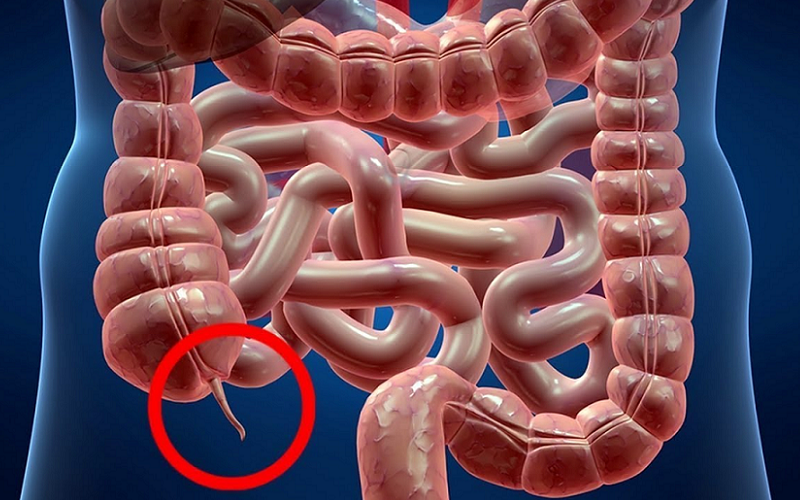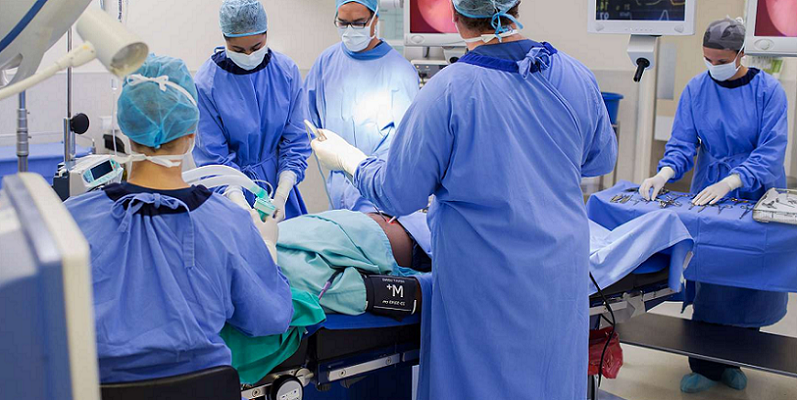
For years, the appendix was dismissed as a vestigial organ, a redundant leftover from our evolutionary past. Yet, recent scientific discoveries are turning this once-overlooked appendage into an intriguing focal point of research. In the ever-evolving world of nootropics and cognitive health, our understanding of the appendix is undergoing a paradigm shift. What if this seemingly inconsequential organ holds secrets to our brain’s performance and overall cognitive well-being?
Contents
The Evolutionary Perspective of the Appendix
The appendix, with its cryptic evolutionary history, has long been a source of speculation and debate among biologists and medical professionals. Exploring the annals of evolutionary science can shed some light on how this organ has come to play a role in our cognitive function.
The Historical Understanding of the Appendix
Historically, our understanding of the appendix was rather limited. It was often cast aside as a relic of our past, serving no real function in the modern human body.
Considered Vestigial
The prevailing belief for a long time was that the appendix was a vestigial organ. This means it once had a purpose in our ancestral line but had lost its primary function over evolutionary time. Many theorized it might have played a digestive role in our herbivorous predecessors, but as our diets evolved, so did the need for such an organ.
Common Misconceptions
Given its reputation as a seemingly purposeless organ, the appendix was often sidelined in medical literature. This overshadowed its potential significance. Misconceptions ranged from it being a “useless” part of the digestive system to it being a ticking time bomb due to its association with appendicitis.
Recent Findings on the Appendix’s Function
As we progressed into the modern era of research and technology, the mysteries surrounding the appendix began to unravel. Scientists started to notice patterns and functions that suggested the appendix might not be so redundant after all.
Immune System Role
One of the groundbreaking discoveries was the role the appendix played in our immune system. Research showed that the appendix was rich in lymphoid tissue, suggesting a potential role in the body’s defense mechanism. It was theorized that the appendix might act as a safe house for beneficial gut bacteria, especially during bouts of gastrointestinal infections.
Gut-Brain Connection
With the growing understanding of the gut-brain axis, it became evident that a healthy gut ecosystem was crucial for cognitive and neurological health. The appendix, in its capacity as a reservoir for beneficial bacteria, might indirectly influence cognitive function by ensuring gut flora stability [1].
Evolutionary Advantages of the Appendix in Cognitive Function
With these recent findings in mind, one might wonder: How does an organ traditionally associated with digestion influence our brain? The answer lies in the deep-seated connections forged over millennia of evolution.
The idea is that as humans evolved, so did the complexity of their cognitive functions. The need for sharper memory, better problem-solving skills, and enhanced social interactions drove the evolution of our brain. A healthy gut, supported by an organ like the appendix that maintained microbial balance, could have indirectly provided the optimal environment for our brain to thrive. By nurturing the gut, the appendix might have been instrumental in fostering conditions conducive for advanced cognitive development.

The Gut-Brain Axis
When we think of the brain, it’s easy to imagine it as a standalone entity, orchestrating our thoughts, emotions, and actions. However, the reality is that our brain has a deeply interwoven relationship with other systems of the body, particularly the gut. This fascinating connection, known as the gut-brain axis, holds the key to understanding the profound influence of the appendix on cognitive function.
Overview of the Gut-Brain Connection
The gut and the brain, though physically distant, share an intricate and bidirectional communication channel. This connection has its roots in both our evolutionary history and the complex symphony of biological processes within us.
Importance of Gut Health on Brain Function
The gut is often dubbed the “second brain,” and for good reason. It is home to a vast network of neurons and produces an array of neurotransmitters, some of which are identical to those found in the brain. A healthy gut ensures optimal production and balance of these neurotransmitters, which in turn can influence mood, cognition, and overall brain health. Moreover, the gut is a reservoir of diverse microbial communities. The health and diversity of this microbiota can have far-reaching effects on brain function, impacting everything from stress responses to memory [2].
Neurotransmitters and the Gut
Serotonin, a neurotransmitter paramount to mood regulation, is a prime example of the gut-brain interplay. An estimated 90% of the body’s serotonin is produced in the gut. Imbalances in gut health can lead to disruptions in serotonin production, potentially influencing mood disorders and other cognitive functions. Similarly, other neurotransmitters like GABA and dopamine, which play roles in anxiety regulation and reward mechanisms, respectively, are also influenced by gut health.
The Appendix’s Role in the Gut Ecosystem
With an understanding of the gut-brain dynamic, it becomes even more intriguing to explore the appendix’s contribution to this ecosystem. Could this once-dismissed organ be a linchpin in the delicate balance of our gut-brain relationship?
Reservoir for Beneficial Bacteria
The appendix, as recent studies suggest, acts as a sanctuary for beneficial gut bacteria. In times of illness or after taking antibiotics, which can decimate the gut’s microbial population, the appendix might release these stored bacteria to repopulate the gut. By ensuring a rapid recovery of gut flora, the appendix can play a pivotal role in maintaining the balance of neurotransmitters and other compounds that influence the brain.
Impact on Gut Flora Diversity
A diverse gut flora is crucial for optimal cognitive function. Different microbial species in the gut produce various metabolites, some of which can cross the blood-brain barrier and influence brain activity. By acting as a reservoir and potentially a source of diverse bacteria, the appendix can indirectly contribute to maintaining a rich tapestry of microbial life in the gut, thus supporting cognitive health [3].

Appendix and Neuroinflammation
As we continue to journey through the complexities of the body’s interconnected systems, we encounter yet another pivotal concept: neuroinflammation. This inflammatory response within the brain and central nervous system can have profound effects on cognitive health. What’s fascinating is that the appendix, a seemingly distant organ, might have an intricate dance with this phenomenon.
Introduction to Neuroinflammation
Neuroinflammation is not merely inflammation localized in the brain. It’s a nuanced response that can both protect and harm our neural environment, depending on its duration and intensity. Understanding its intricacies is crucial to grasp the potential influences of the appendix on our cognitive well-being.
Definition and Impact on Cognitive Health
Neuroinflammation refers to the inflammatory response within the brain and central nervous system. Triggered primarily by activated microglia (the resident immune cells of the brain), this response can arise due to infections, trauma, autoimmune reactions, or other causes. While acute neuroinflammation can be protective, helping to clear out pathogens or damaged cells, chronic neuroinflammation is often detrimental. Prolonged inflammation can lead to neuronal damage, disruptions in neurotransmitter balance, and has been linked to conditions like Alzheimer’s disease, depression, and other cognitive disorders [4].
Causes of Neuroinflammation
Various factors can initiate or exacerbate neuroinflammatory responses. These range from direct brain injuries and infections to systemic issues like chronic stress, poor diet, or gut health imbalances. The gut-brain connection, as previously discussed, plays a crucial role, with gut dysbiosis (imbalance of microbial communities) being a potential trigger for neuroinflammation.
How the Appendix Influences Neuroinflammation
With the backdrop of neuroinflammation in mind, the role of the appendix emerges as a compelling topic of exploration. How does an organ traditionally associated with the gut come into play in the realm of brain inflammation?
Modulation of Immune Response
The appendix, rich in lymphoid tissue, plays an active role in the body’s immune system. It can influence the systemic immune response, modulating how the body reacts to various threats. A healthy appendix might contribute to a balanced immune response, ensuring that it is neither too aggressive nor too lax, both of which can lead to neuroinflammatory issues.
Influence on the Gut-Brain Axis
As previously highlighted, the appendix is instrumental in maintaining a balanced gut ecosystem. By acting as a reservoir for beneficial bacteria, it ensures the gut recovers quickly from disruptions. A balanced gut, in turn, reduces the risk of gut-derived inflammatory agents affecting the brain. By keeping gut inflammation in check, the appendix can indirectly play a role in minimizing triggers for neuroinflammation.
Potential Nootropic Implications of the Appendix
The world of nootropics, or cognitive enhancers, has seen a surge in interest as people increasingly seek ways to optimize their brain function. With our evolving understanding of the appendix’s potential role in cognitive health, one can’t help but wonder: Could there be nootropic implications tied to this organ?
Existing Nootropics and Gut Health
Before diving into the specific role of the appendix, it’s essential to acknowledge the established relationship between certain nootropics and gut health, setting the stage for the appendix’s potential contribution.
Importance of Gut Health in Nootropic Research
The gut-brain axis has gained significant attention in the nootropic community. Some cognitive enhancers, whether they’re dietary supplements or pharmaceutical agents, can influence or be influenced by gut health. For instance, certain probiotics are now labeled as “psychobiotics” for their potential to impact mood and cognition through gut modulation [5].
Gut-derived Neurotransmitter Modulation
Many nootropics aim to balance or boost neurotransmitter levels in the brain. As discussed earlier, a significant portion of these neurotransmitters, like serotonin, originate or are influenced by the gut. Thus, any nootropic strategy targeting neurotransmitters must consider the health and diversity of the gut microbiota.
Possible Future Interventions Targeting the Appendix
With the backdrop of nootropics and gut health established, the role of the appendix becomes a riveting area of exploration. Could there be interventions that specifically target the appendix to enhance cognitive function?
Probiotics and Prebiotics
Considering the appendix’s role as a reservoir for beneficial bacteria, it’s conceivable that specific strains of probiotics could be developed to colonize or support the appendix. Similarly, prebiotics, which are compounds that foster the growth of beneficial bacteria, might be tailored to support the bacterial communities within the appendix, indirectly promoting cognitive health.
Dietary and Lifestyle Recommendations
Dietary habits can influence the health of the appendix and its microbial residents. High-fiber diets, for example, support a diverse gut flora and could, in theory, support the appendix’s role in maintaining this diversity. Additionally, lifestyle practices that reduce the risk of appendicitis or other appendix-related issues could be emphasized for those looking to optimize cognitive function through gut health.
Cautionary Notes and Limitations
While the potential nootropic implications of the appendix are exciting, it’s imperative to approach the topic with a balanced perspective, recognizing the current limitations in our understanding.
Research into the appendix, its microbial inhabitants, and its broader impact on cognition is still in its early stages. While preliminary findings are promising, much is yet to be uncovered. Overemphasis on the appendix without considering the broader gut-brain axis could be myopic. Moreover, while dietary and lifestyle adjustments carry minimal risks, any direct interventions targeting the appendix should be approached with caution until more research is available.
References
[1] Past appendectomy may be related to early cognitive dysfunction in Parkinson’s disease
[2] The lowly appendix may play a surprising role in the development of Parkinson’s disease
[3] The Brain–Intestinal Mucosa–Appendix– Microbiome–Brain Loop
[4] Why do humans have an Appendix?
[5] Appendix may have important function, new research suggests

